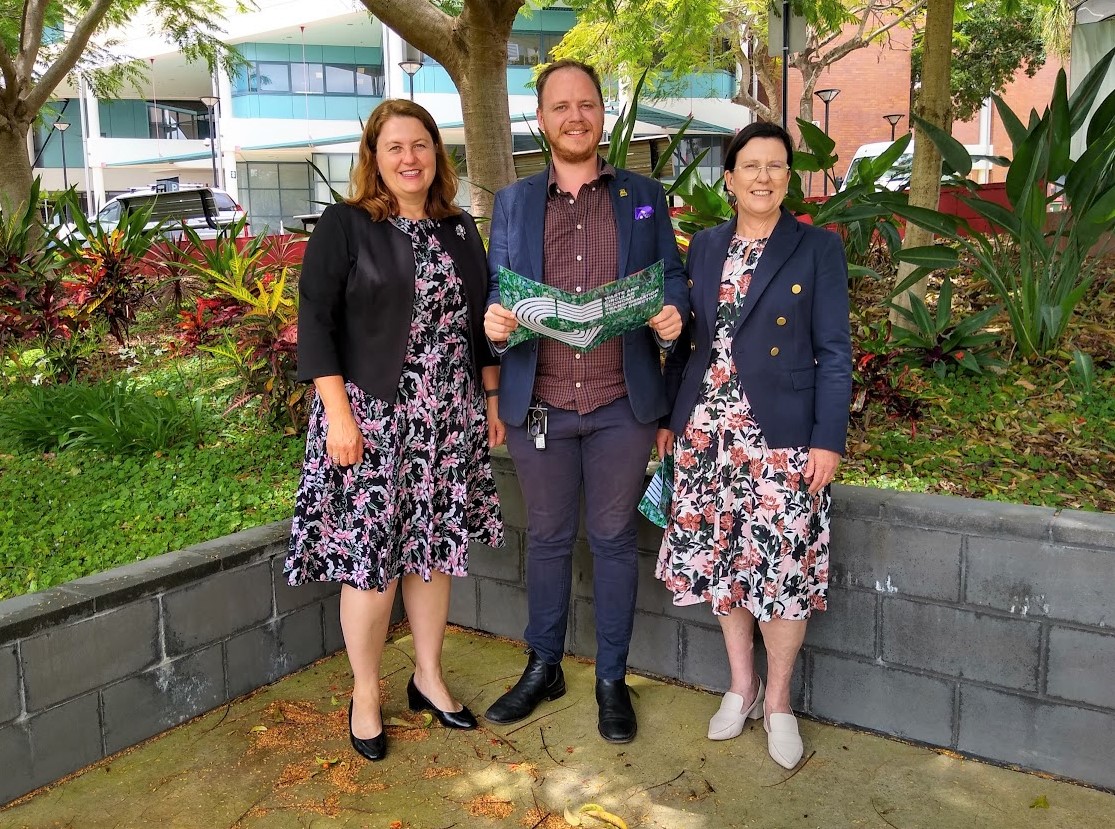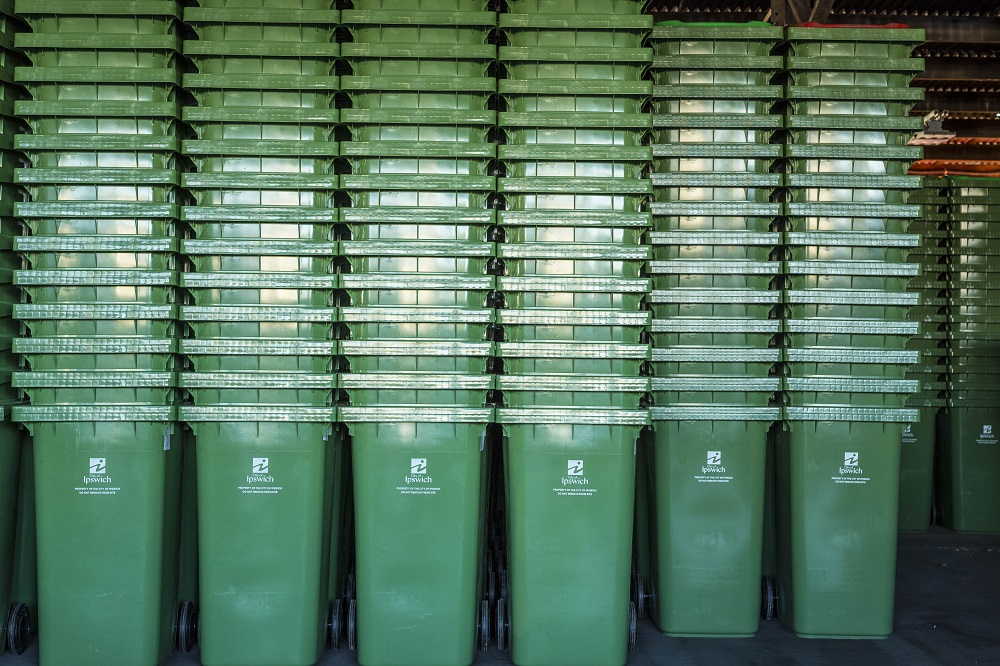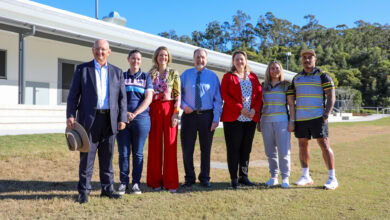Ipswich City Council is taking innovative steps to cut waste, improve resource recovery and drive the circular economy.
Councillors today backed a new strategic and operational approach to managing and influencing systemic changes across waste, resource recovery and the circular economy, to deliver better outcomes for the city and its residents towards 2030.
The powerful Growth, Infrastructure and Waste Committee today voted unanimously to support the notice of motion tabled by Deputy Mayor Marnie Doyle to adopt the Waste and Circular Economy Transformation Directive.
This new directive marks a significant and positive step forward on waste industry impacts and opportunities for the Ipswich local government area, which disposes a large proportion of South East Queensland’s and the State’s waste (55 per cent and 42 per cent respectively in 2019-20).
The directive details the myriad of challenges currently faced by council in dealing with the growing sector. It outlines 10 guiding principles that will inform council’s strategic and operational activities over the coming years and provides a platform for a concerted and coordinated effort across waste, resource recovery, recycling and the circular economy.
Committee Chair, Mayor Teresa Harding said she looked forward to seeing the Waste and Circular Economy Transformation Directive translate into positive outcomes for the people of Ipswich, who had been impacted for decades by previous poor decisions on waste management.
“In 2018-19, the eight privately owned and operated landfills located in Ipswich received approximately 4.23 million tonnes of all waste generated by Queenslanders, and our community received little or no benefit,” Mayor Harding said.
As at 30 November 2020, the State Government’s Odour Abatement Taskforce had received 8,517 complaints in relation to odour, dust and environmental issues in the Swanbank Industrial Area, This highlights the significant impact to residents.
“Waste disposal issues in our region are long-running and well known to our stakeholders. At the same time, the evidence base is building for the economic and environmental benefits of the circular economy model.
Council welcomed the State Government’s commitment to establish a joint-taskforce after raising a range of issues with previous Environment Minister Leeanne Enoch.
“We very much look forward to working with the newly appointed Minister for Environment Meaghan Scanlon, to lift industry performance and improve outcomes for the people of Ipswich,” she said.

Council has had success in defending one appeal for a refusal of a waste facility for Biorecycle that was appealed, and has a further four appeals to contend with. The Department of Environment and Science has also had recent success in respect to action taken on the Nugrow facility. Cooperation with our compliance functions is a logical step in protection our community.
Cr Doyle said the new council had been working consistently on a strategy to address the spectrum of waste issues, but due to the complexity of the sector, progress had been steady but incremental.
“Our directive signals that it’s time for all stakeholders to take action. Council is willing and ready to collaborate, but other levels of government and industry need to step-up if we are to address the impacts and opportunities of the waste industry’s operations once and for all,” she said.
The directive outlines 10 key principles, including:
- Establish a waste code of practice
- Drive industry best practice
- Strong compliance culture
- Strategic and sequenced remediation
- Protect our residential amenity
- Partnering and collaboration
- Lead by example
- Leverage waste industry opportunities
- Create a better return for Ipswich
- Plan for the future
The notice of motion included the establishment of dedicated program to develop and deliver a corresponding strategy and implementation plan within council, to be rolled out from 2021.
The directive builds on the range of actions taken by council to address waste industry impacts, including:
- Brokering an agreement with the State Government to establish a joint-taskforce to address policy, legislative and regulatory reform as well as levy financial model and sector investment;
- Developing relationships with key industry stakeholders to address the absence of social licence to operate;
- Commence review of the Material Recovery Resource Plan;
- Conducting significant community engagement via recent household waste survey;
- Commencement of bin audits to collect data on household waste streams;
- Conducting onsite audits of waste management operations to address compliance concerns; and
- Working closely with Mayors across 11 South East Queensland councils to transform the region’s approach to managing household waste streams through active participation on the COMSEQ Waste Working Group.
Cr Doyle said the directive guides council’s future approach to planning scheme development, regulations and enforcement and legal actions.
“The challenges and opportunities surrounding the commercial waste industry’s operations in Ipswich require a comprehensive approach,” she said.
The Queensland Government’s Waste Management and Resource Recovery Strategy sets out targets for 2050 to reduce household waste by 25 per cent, recover 90 per cent of waste (landfill diversion) and drastically increase recycling rates by 75 per cent across all waste types.
Read More
>>>Waste groups set up to tackle ongoing issue for Ipswich residents



Teresa dose this mean companies will illegal dump in bush land as else where
One way Council can easily and quickly increase recycling rates is to give us back our bigger recycling bins. Our household consistently produces each week only half a bin of general waste but two thirds a bin of recycling, meaning at the end of the fortnight we are scrambling to store the recycling somewhere to try and still recycle it rather than put it in the general waste bin.